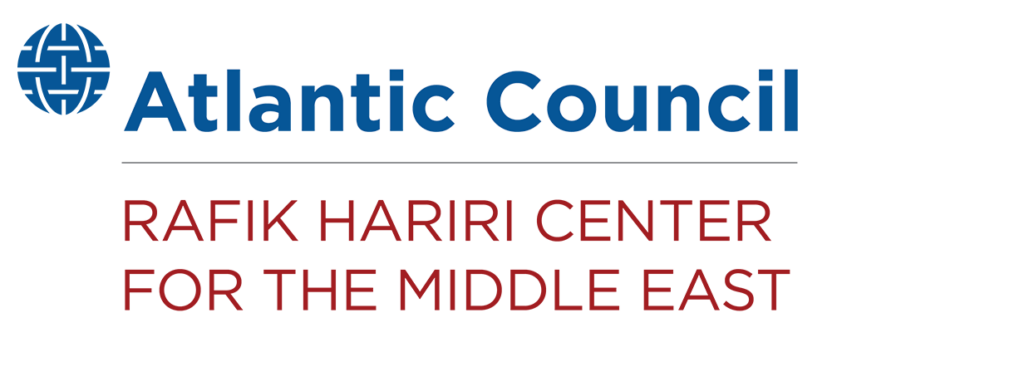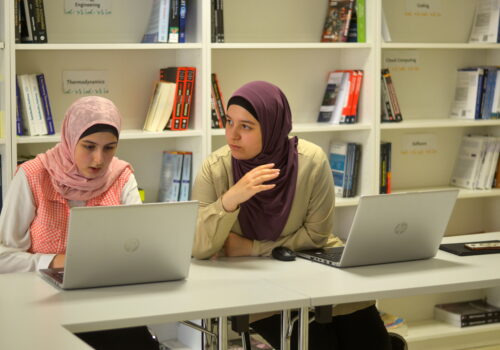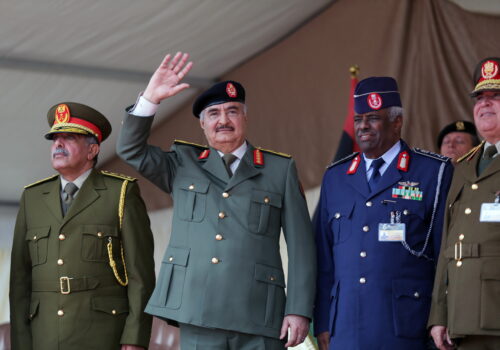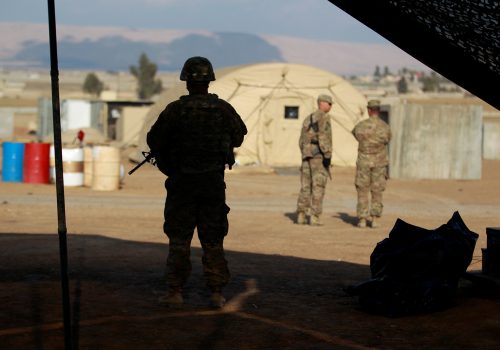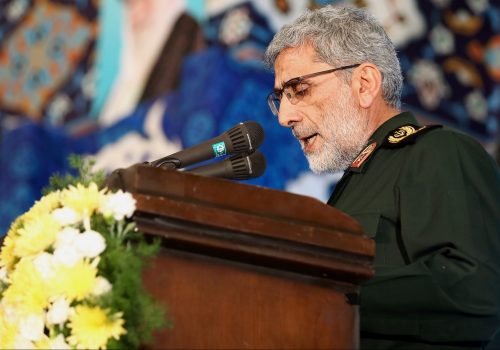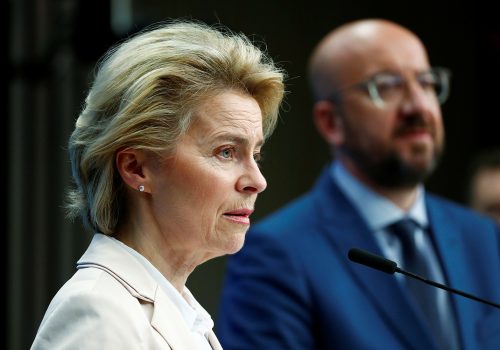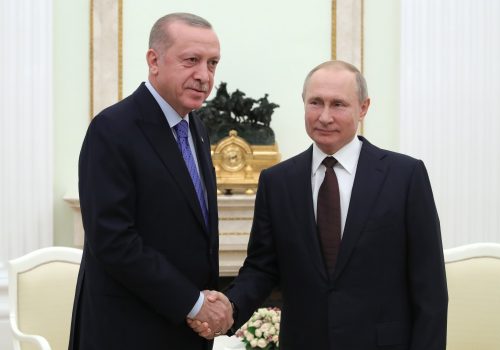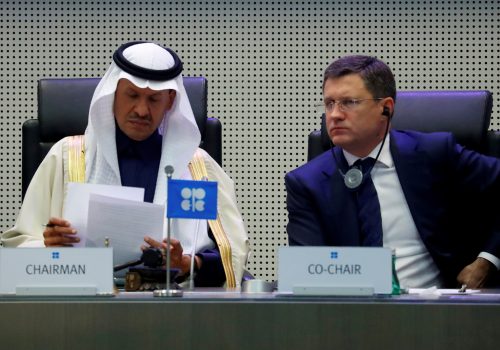Atlantic Council press call: Oil market meltdown: Price wars, coronavirus, and energy geopolitics
Last week’s breakdown of OPEC+ meetings in Vienna has turned a demand side driven decline in oil prices caused by the impacts of Coronavirus into an oil price war between two oil producing giants, with US shale production the ostensible target. If the standoff continues, however, the price war might ultimately do more harm to the Saudi and Russian economies. With increasing uncertainty about the depth of Coronavirus’ impact on global growth, the price war might also contribute to a sharp decline in the global economy.
Helima Croft, David L. Goldwyn, Jean-Francois Seznec, Anders Aslund, and Randolph Bell discuss ongoing market volatility, the origins of the crisis, what’s next for US shale, and the implications of it all for energy and geopolitics
